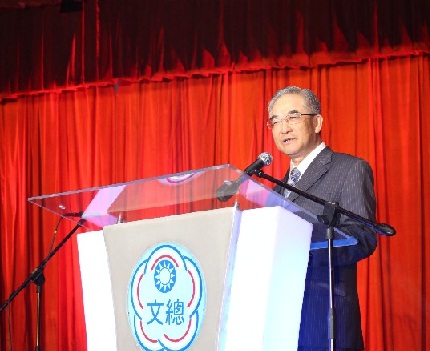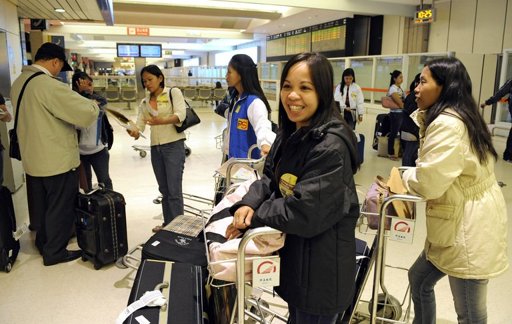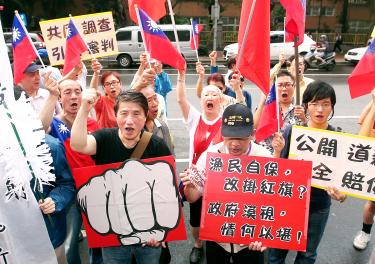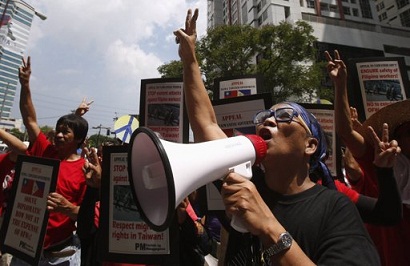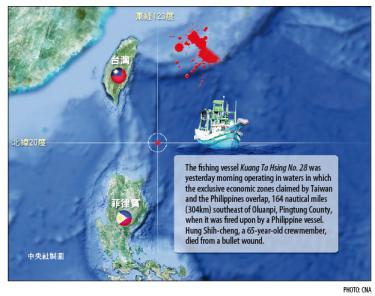 Do you want to win a mountain bike, a laptop, a 42-inch TV, and a cellphone?
Do you want to win a mountain bike, a laptop, a 42-inch TV, and a cellphone?
Watch a short film titled “Together We Can” and you may get any one of those items for free.
The Taipei Economic and Cultural Office (TECO) in the Philippines is inviting everyone to Taipei Economic and Cultural Office (TECO) in the Philippines is inviting all Filipinos to participate in a nationwide contest that offers three Taiwan Giant mountain bicycle Talon as prizes for the grand winners.
Aside from the grand prizes TECO said there will be six second prizes (Taiwan Acer Laptop), seven third prizes (Taiwan TECO LED 42-inch TV) and 14 special prizes (Taiwan ASUS FonePad 7 cell phone).
All that the participants have to do is watch “Together We Can” that can be accessed online at www.togetherwecan.tw . Participants are eligible to join the prize draw by checking the official website of TECO (www.taiwanembassy.org/PH) to answer questions.
The contest started last Dec. 11. But there’s plenty of time to join as it will be until noon of Friday, December 19, 2014.
The micro-film is about three friends and colleagues-one from Indonesia, another from Malaysia and the last one from Taiwan-team up to work on a bicycle project.
Challenge: Succeed and they get promoted as well as the chance to impress the boss’ daughter. Fail and they get fired. But will they be able to pull it off?
Watch the movie and answer the questions. For more information, go to https://www.youtube.com/watch?v=B6JHNE3RL-c.
TECO’s press release said the prize draw will be held in Taiwan on December 22 and the names of the lucky winners will be posted in TECO’s website on December 23, 2014.
Winners of the above four categories are required to receive the prizes in person with valid identification at the presentation of awards, which will take place at TECO (Add: 41/F, Tower 1, RCBC Plaza, 6819 Ayala Avenue, Makati City, Philippines), scheduled at 4 pm, Thursday, January 22, 2015. Winners who fail to attend in person will forfeit their rights and be replaced.
The above-mentioned valid IDs include Passport, Driver’s License, School ID, Birth Certificate issued by National Statistics Office, SSS ID, Voter’s ID, Philhealth ID, PAG-IBIG.
TECO said the contest is to enhance Filipinos’ further understanding of the Republic of China (Taiwan).
Relations between the Philippines and Taiwan, which was marred by the shooting and killing by members of the Philippine Coast Guard of a fisherman in the disputed waters of Balintang Channel near Batanes in May 2013, are back to its vigorous level after the Philippine government apologized and gave compensation to the family of the victim. The Coast Guard personnel involved have been charged in court.
The new TECO head, Ambassador Gary Cong-Huann Lin, said relations between Taiwan and the Philippines would get additional boost if a fishing agreement is signed.China is opposing any official agreement with Taiwan (The Philippines has a One-China policy, meaning it recognizes the People’s Republic of China with its capital in Beijing as the government representing the Chinese people. China considers Taiwan its province.)
The Philippines maintains a people-to-people relations with Taiwan represented by the Manila Economic Cooperation office in Taipei and TECO in Manila.
Both TECO and MECO officials are confident the obstacles to the fishing agreement can be hurdled. What they have agreed and is being practiced now is not to use force in case of either Filipino or Taiwanese fishermen ventures into the disputed waters.
***
The most awaited number in all Christmas parties is the raffle contest. But not all raffle contests are legitimate.
The other day I got this text from Mobile number 6392-6603-1259: Ma’am/Sir Congrats! Ur Sim# Had won 2nd prize winner worth of Php 780,000.00) Thru Electronic Raffle Draw :Handog Pangkabuhayan” frm President:BENIGNO C. AQUINO” To claim ur prize Pls call me now. I’m JESSIE M MORALES frm:BSP INFO DPT.per DTI#10152 s’14.
Ignore when you get this message. It’s a scam. Beware.
